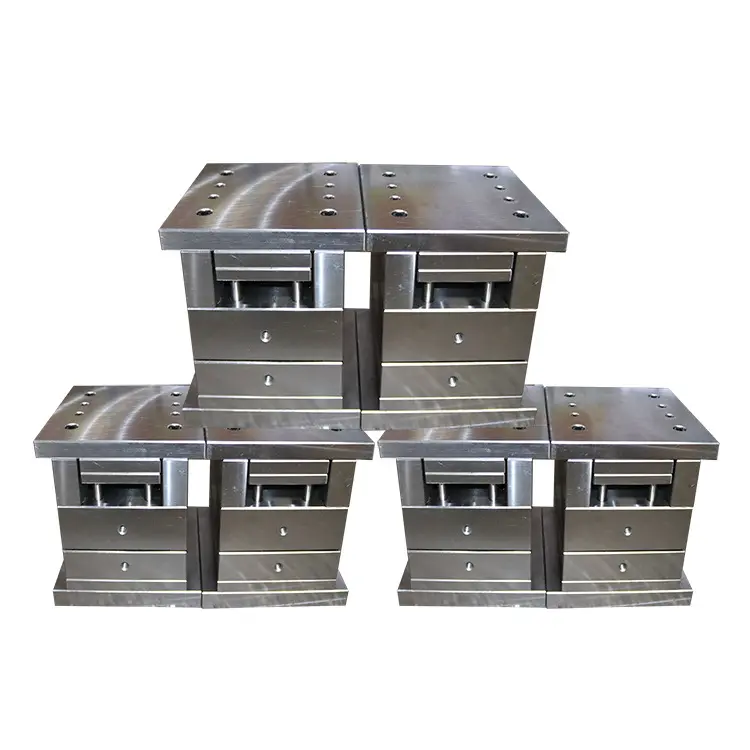In the fast-paced world of precision engineering, choosing the right materials is crucial to the success of any project. High-quality tool steel plates possess unique properties that make them ideal for various precision manufacturing applications. In Singapore, the demand for robust, reliable materials has surged, making it essential to understand the characteristics and benefits of tool steel plates.
Understanding Tool Steel Plates
Tool steel is a type of carbon and alloy steel that is well-suited for making tools. The composition and heat treatment of tool steels allow them to maintain their shape and hardness even under extreme conditions. Tool steel plates are primarily used in the manufacturing of dies, molds, and various engineering tools.
- High Hardness: Tool steel plates can be hardened to withstand wear and deformation.
- Wear Resistance: Excellent resistance against abrasive wear, making them ideal for long-lasting applications.
- Good Toughness: They can absorb energy and resist cracking, enhancing durability under stress.
Types of Tool Steel Plates
In the context of precision engineering, different types of tool steel plates are utilized, each catering to specific requirements. Below is a table summarizing various types of tool steel plates:
| Type | Key Properties | Common Applications |
|---|---|---|
| O1 | Oil-hardening, good machinability, excellent edge retention | Cutting tools, jigs, fixtures |
| A2 | Air-hardening, high wear resistance, and toughness | Molds, die-casting |
| D2 | High carbon, high chromium, excellent wear resistance | Die-making, stamping dies |
| S7 | Shock-resistant, good machinability, tough | Forming tools, hammers |
The Importance of Quality in Tool Steel Plates
Quality is paramount when it comes to tool steel plates, especially in precision engineering. **Using subpar materials can lead to failures**, project delays, and increased costs. High-quality tool steel plates offer benefits such as:
- Enhanced performance and longer tool life.
- Consistency in machining and manufacturing processes.
- Lower maintenance and replacement costs over time.
- Improved product quality and precision.
Choosing the Right Supplier in Singapore
Selecting a reliable supplier is critical for acquiring high-quality tool steel plates. In Singapore, there are several factors to consider when making a choice:
- Reputation: Look for suppliers with positive reviews and a solid track record.
- Quality Assurance: Ensure that the supplier prioritizes quality control and testing.
- Diverse Catalog: A wide variety of tool steel plates ensures you find the right type for your needs.
- Technical Support: Opt for suppliers who offer consulting services and technical assistance.
Applications of Tool Steel Plates in Precision Engineering
Tool steel plates are versatile materials used across a range of industries and applications. Below are some of the prevalent use cases:
- Mold Making: Critical in the production of injection molds and blow molds.
- Cutting Tools: Used in producing drill bits, saw blades, and knives.
- Automotive Industry: Die plates for stamping and shaping metal components.
- Aerospace: Components that require high performance and reliability under extreme conditions.
Purchasing Considerations for Tool Steel Plates
When purchasing tool steel plates, especially for precision engineering applications, consider the following factors:
- Thickness and Size: Ensure the dimensions align with your project requirements.
- Heat Treatment: Confirm if specialized heat treatment is necessary for your application.
- Surface Finish: Smoothness and finish quality can impact machining and assembly.
- Delivery Time: How quickly the supplier can deliver the material affects project timelines.
Conclusion
High-quality tool steel plates are essential in precision engineering, providing the durability and performance needed for various applications. In Singapore, the choice of supplier and material directly influences the quality of the end product. By understanding the types of tool steel plates available, their properties, and how to choose the right supplier, manufacturers can enhance their operational efficiency and product reliability. Investing in high-quality tool steel plates is not just about material selection—it's integral to achieving precision and excellence in engineering.

